Completion of the Third Group of the Entrepreneurial Education Development Program for Forcibly Displaced People from Nagorno-Karabakh
.jpg?token=10d6f6611113c07c22b532de04ebc979)
On September 6, the third group of the Entrepreneurial Education Development Program for forcibly displaced people from Nagorno-Karabakh, implemented by the Republican Union of Employers of Armenia (RUEA), successfully concluded. The program aimed to enhance participants’ business skills and support them in taking practical steps toward starting their own enterprises.
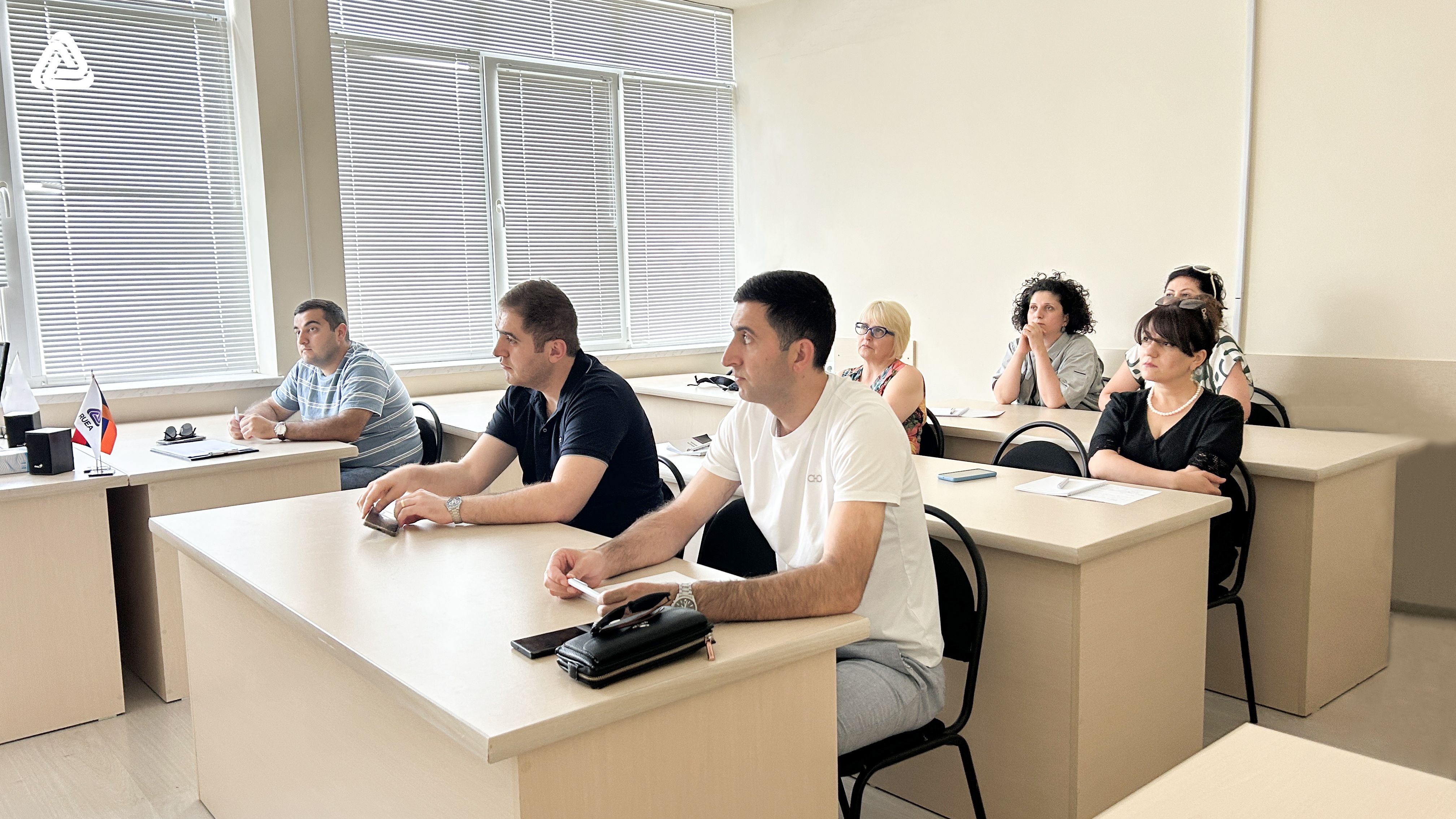
The third group's trainings were conducted in a hybrid format, combining in-person and remote learning, which made it possible to expand the program's geographical accessibility and ensure the participation of beneficiaries living in different marzes of Armenia. As a result of the intensive one-month course that started on August 12, 29 participants gained essential knowledge and skills necessary for establishing, managing, and sustainably developing their own businesses. They explored fundamentals of entrepreneurial activity, business organization regulations, financial planning principles, market analysis methods, and the basic requirements of Armenia's legislative and tax framework for business operations.
Participants also acquired skills in developing business plans, calculating costs, utilizing financial management tools, understanding budgeting structures, and applying information and analytical resources. The trainings also addressed financial institutions and diverse sources of investment, exploring potential financing options and effective models of collaboration. were conducted by experienced professionals in the field: Mihran Tadevosyan, RUEA Board Member, finance expert and economist, and PhD in Economics Soghomon Mirzoyan, RUEA Board Member, President of the Association of Armenian Financiers.
Participants expressed their gratitude to the organisers, highlighting that the program provided a unique opportunity for them to gain valuable knowledge and hands-on skills that will allow them to launch new business ventures, thereby ensuring stable income.
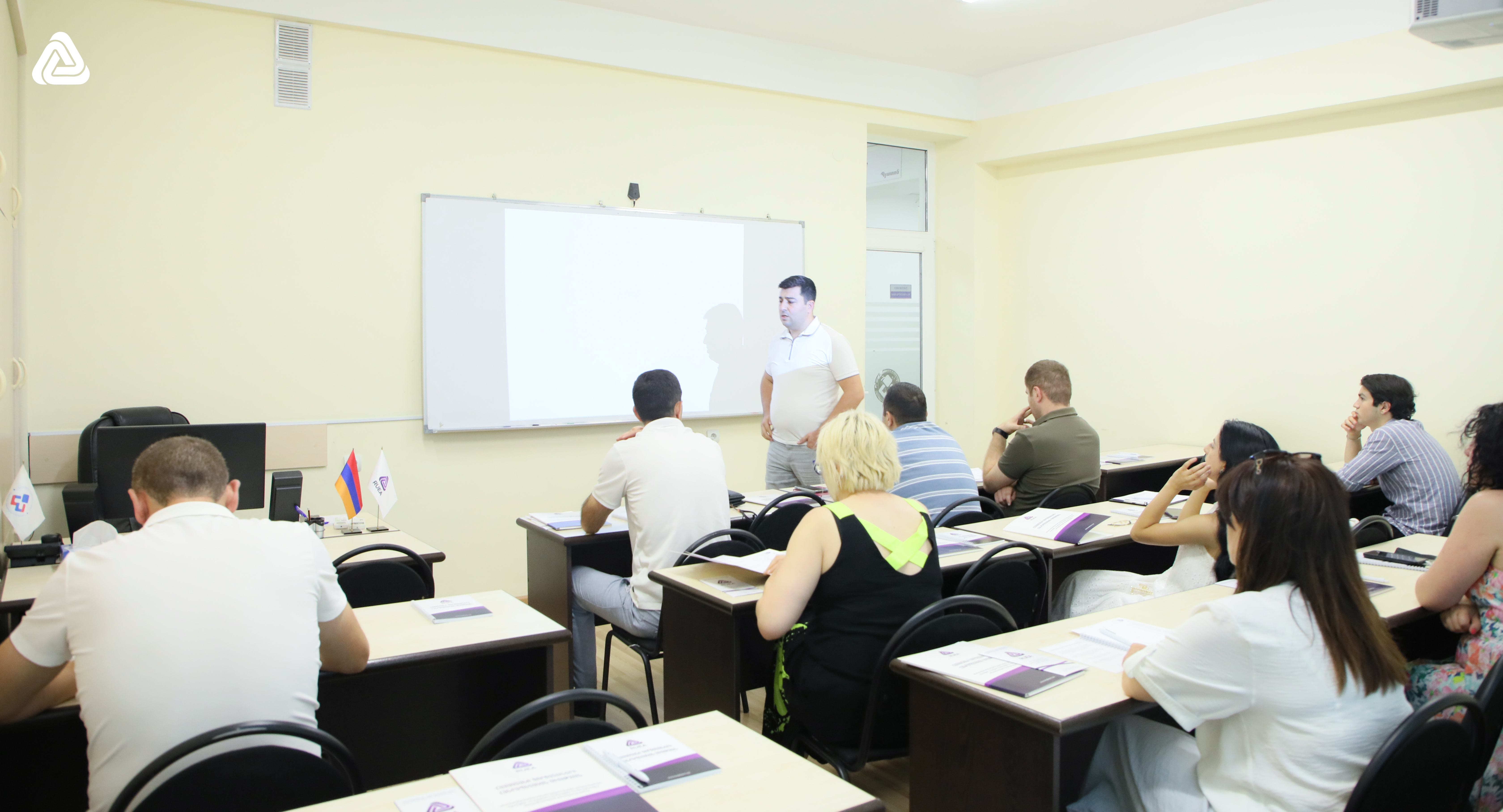
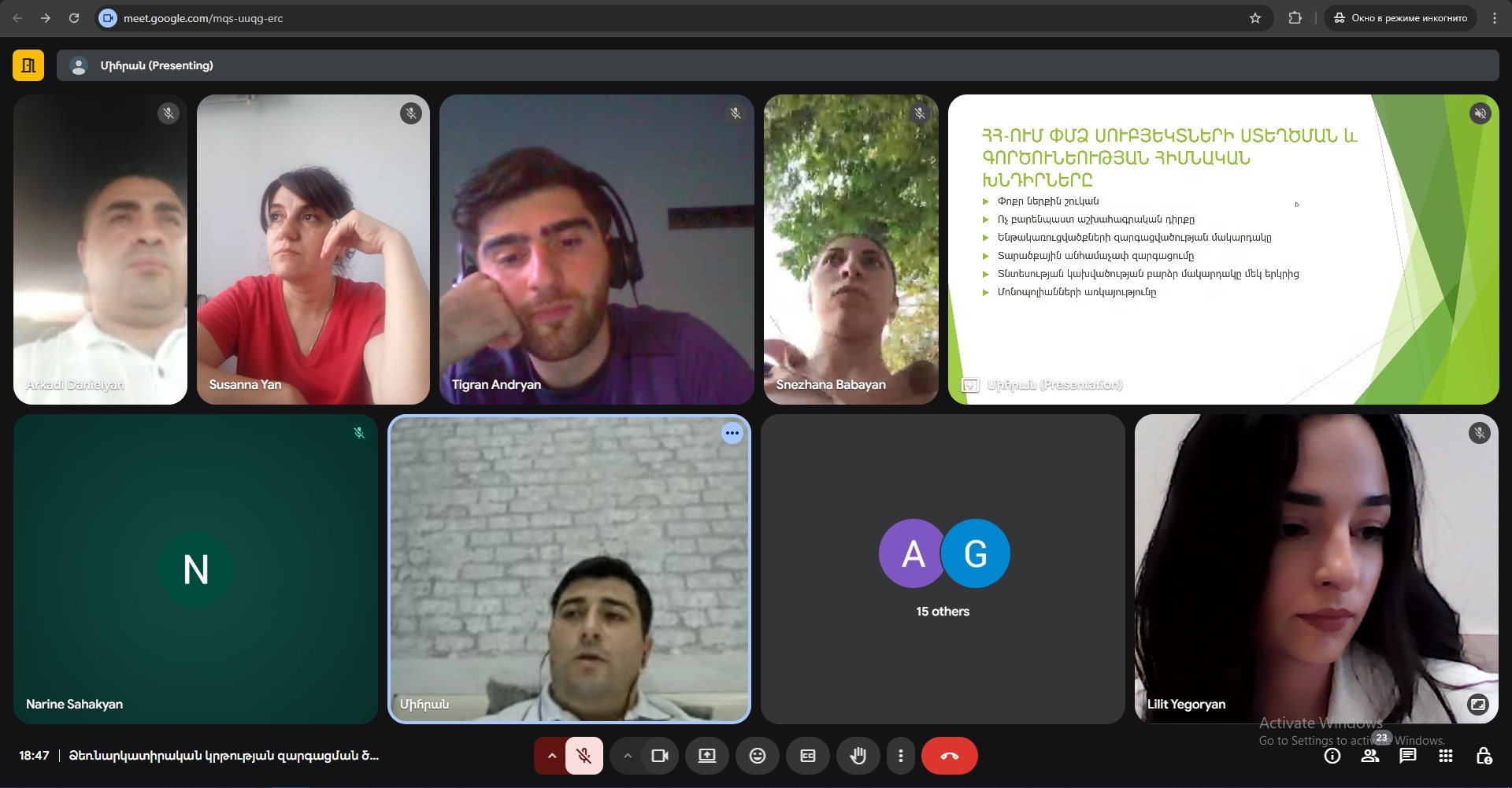
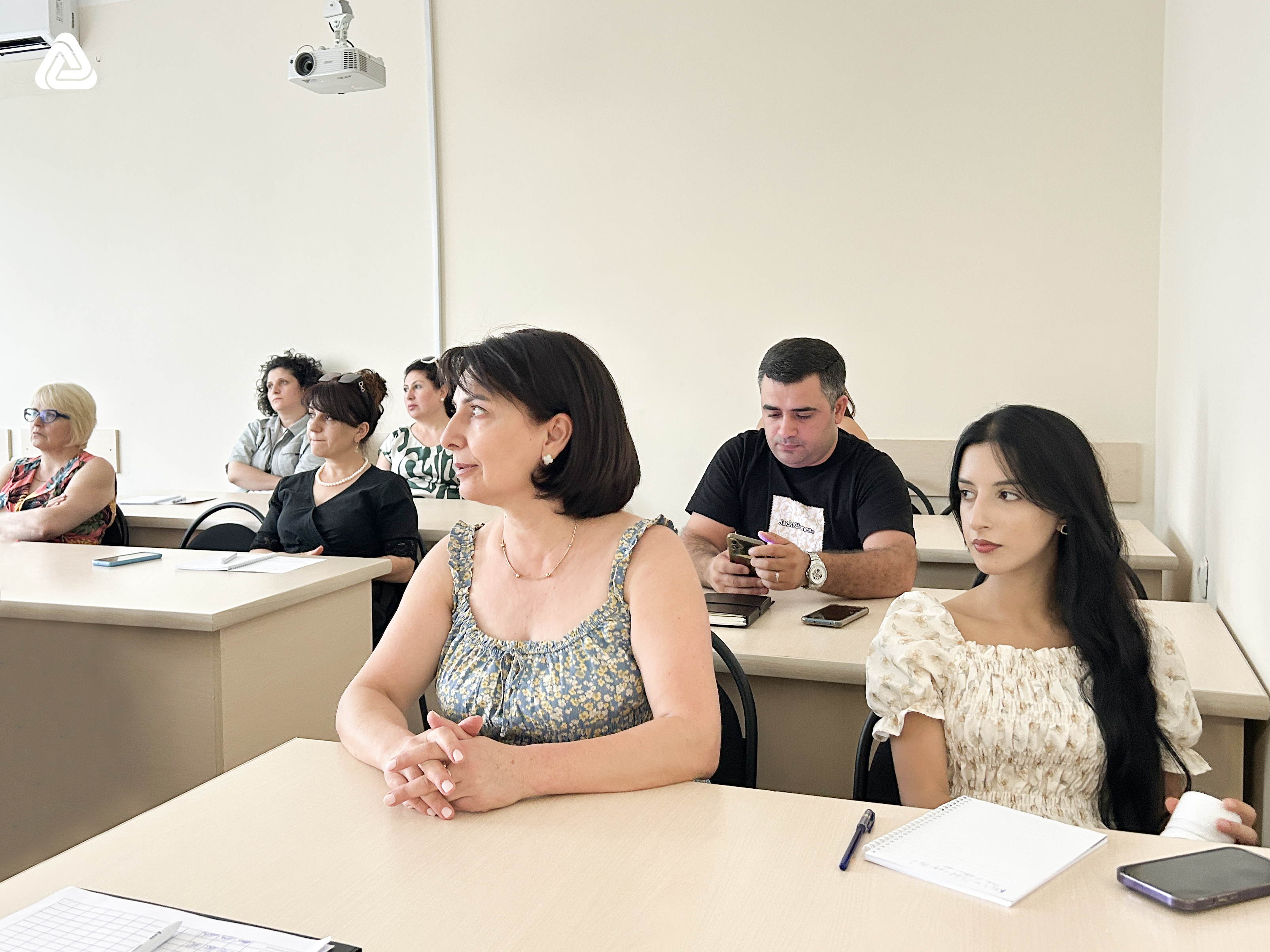
The completion of the third group marks the conclusion of the Entrepreneurial Education Development Program for forcibly displaced people from Nagorno-Karabakh, with the final outcomes and achievements to be showcased at the upcoming wrap-up conference.
It should be noted that the project was implemented with the support of International Labour Organization (ILO) under the ILO initiative “Building the capacity of constituents to pre-empt the informalisation of work and promote the transition to formality in the context of a refugee crisis.
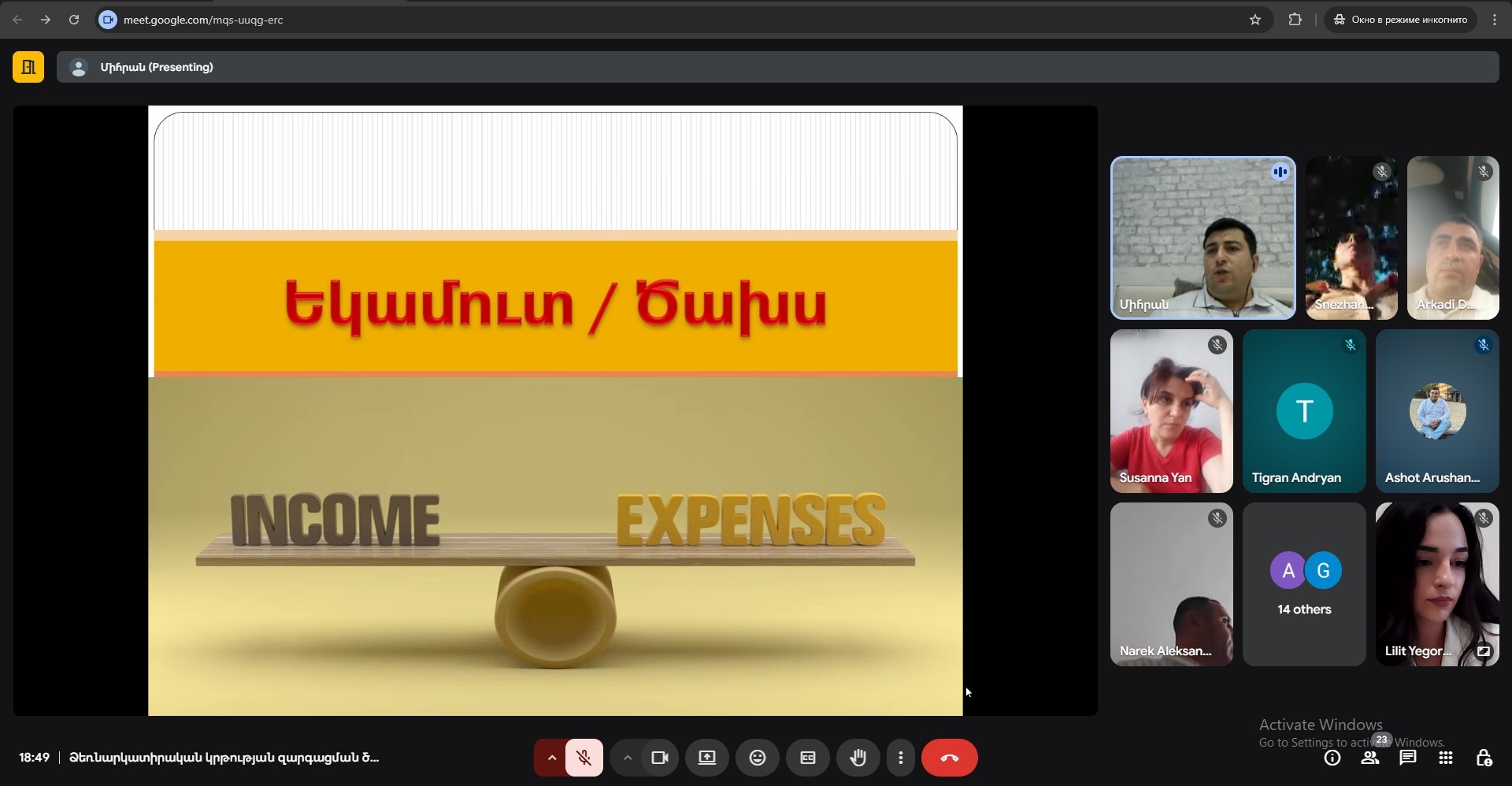
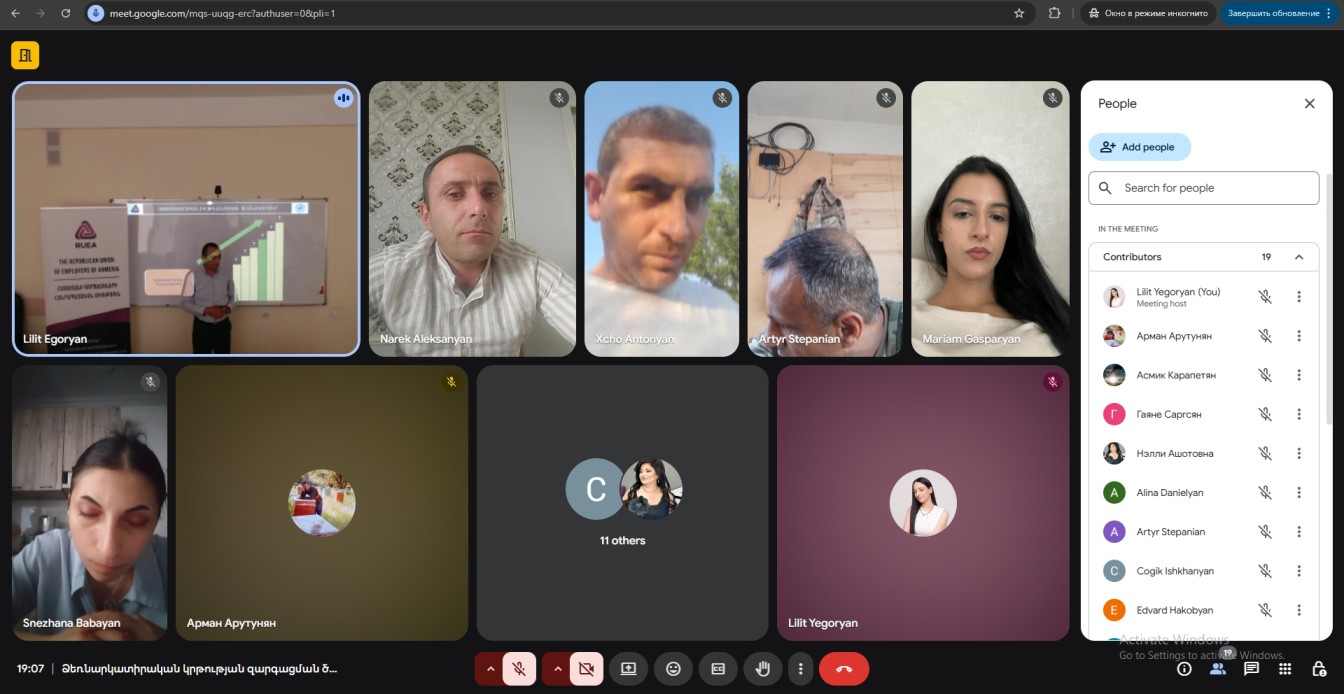
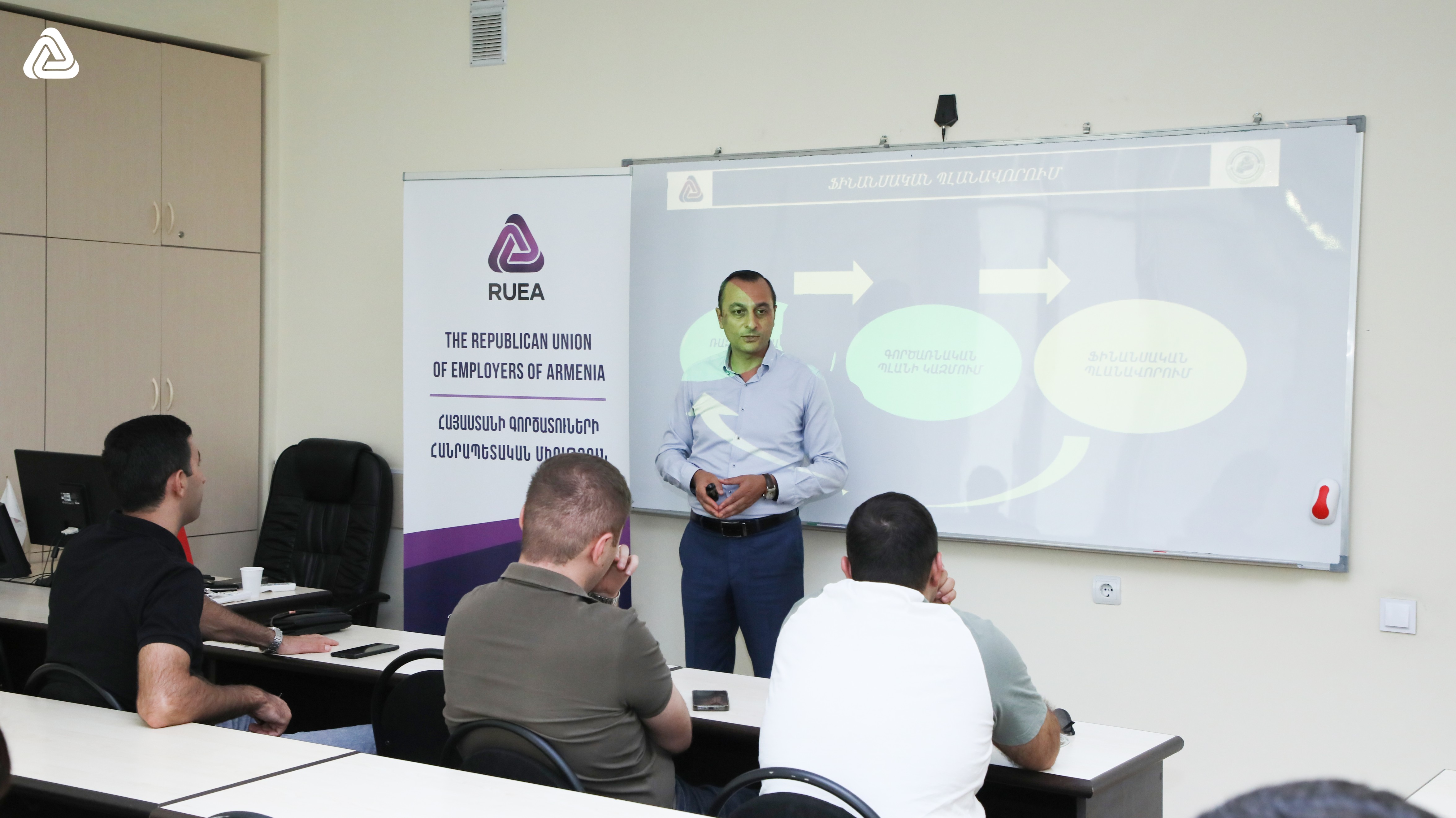
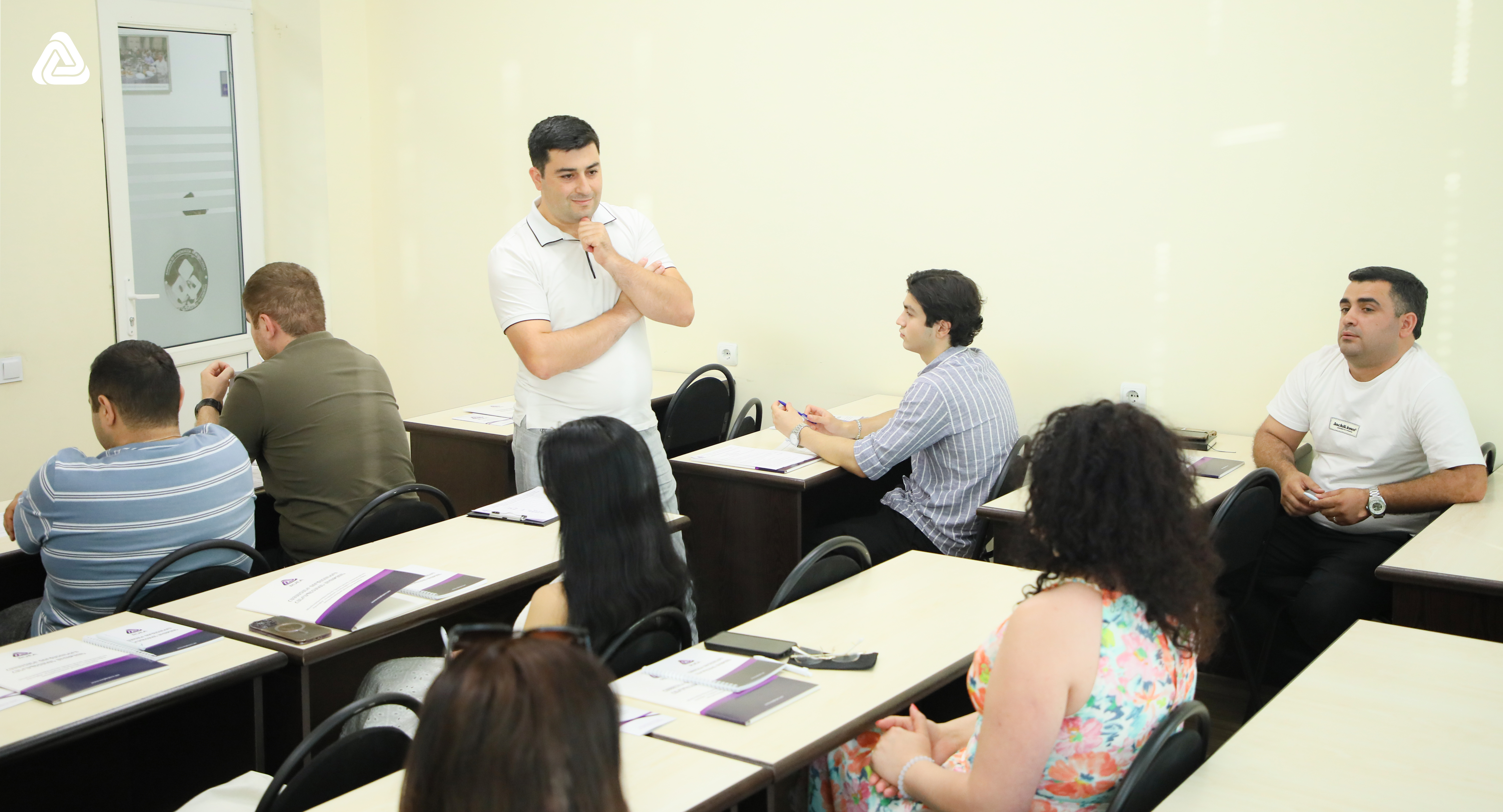
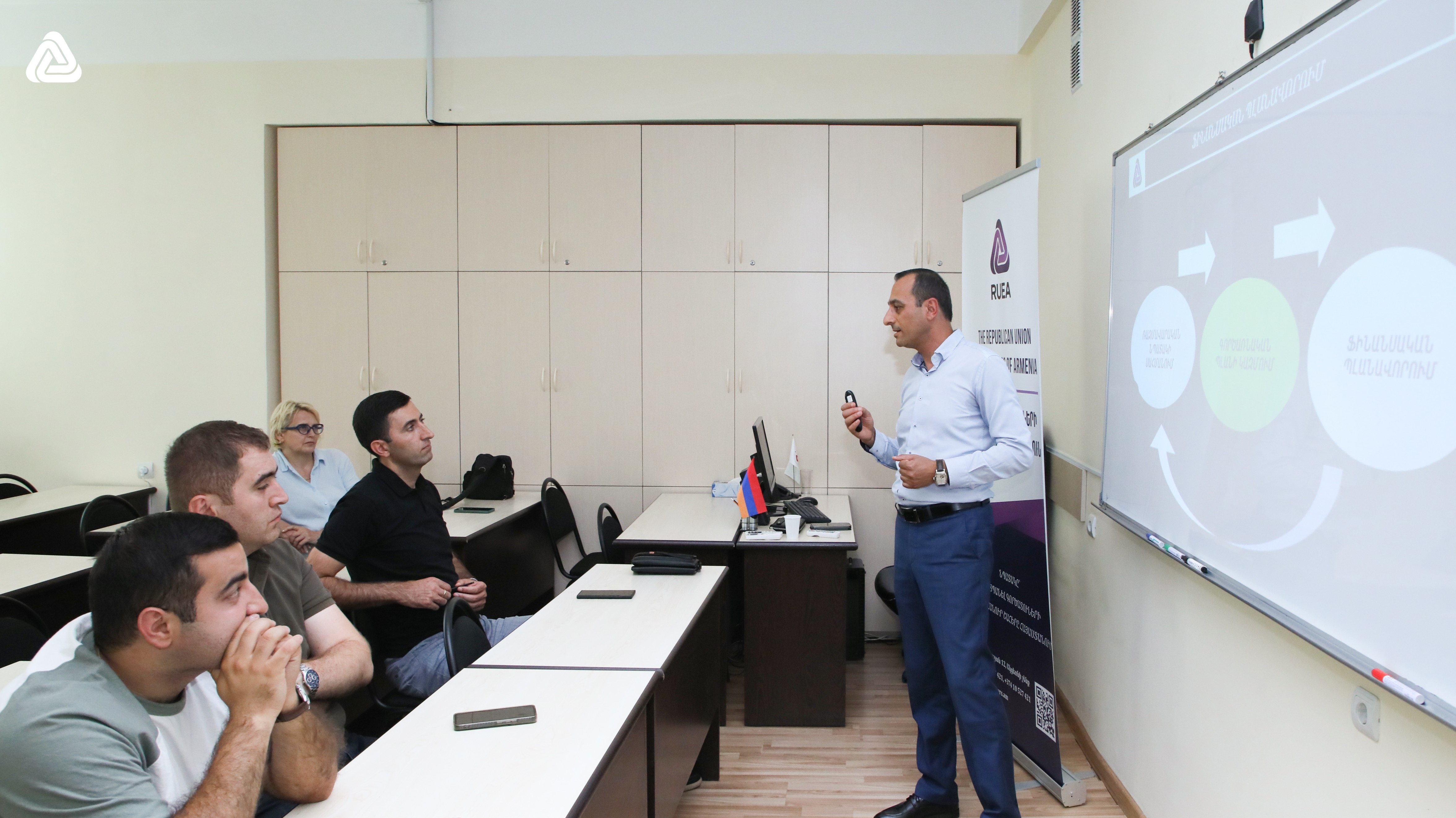
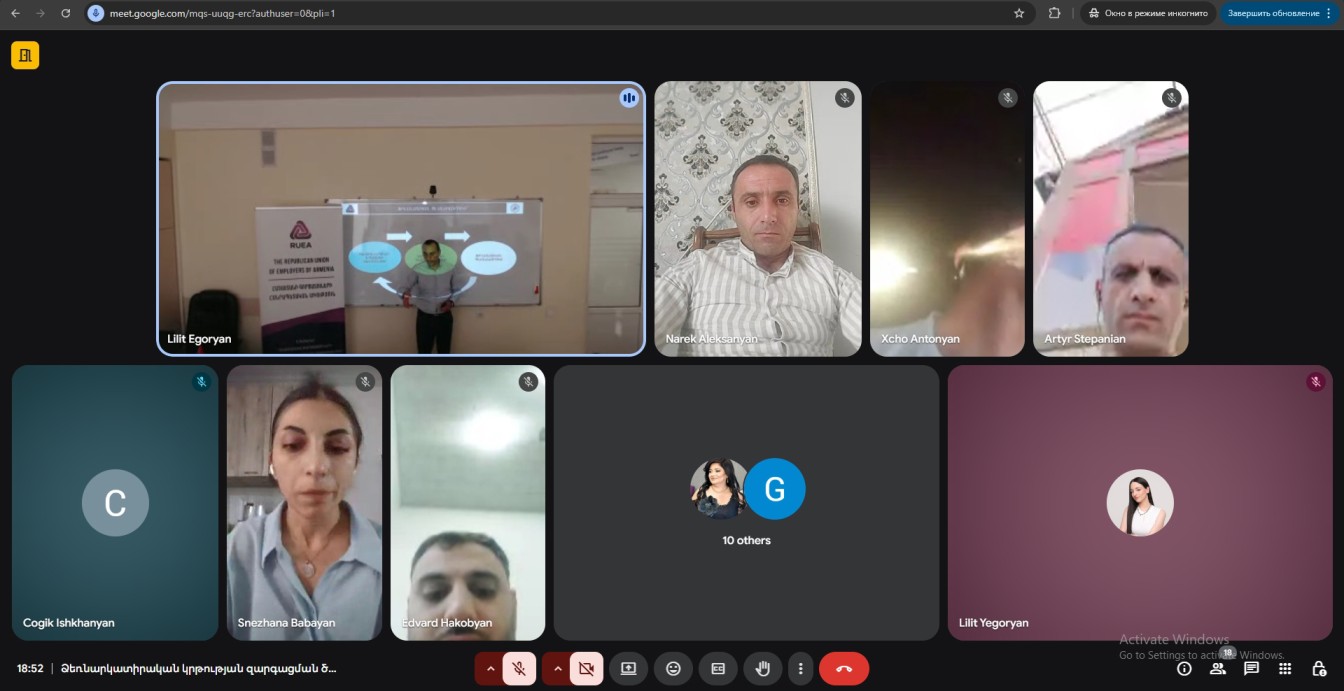
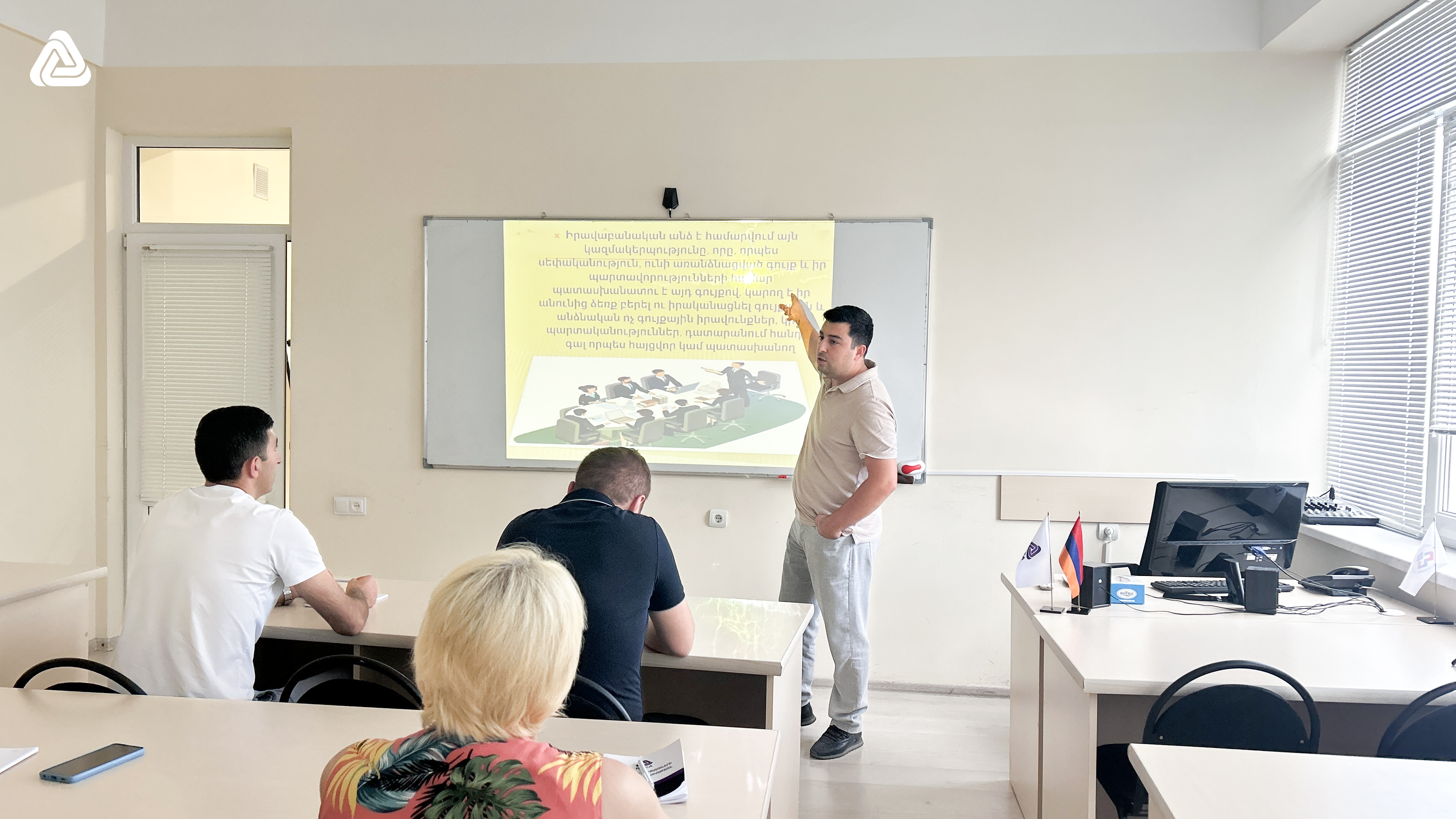
LATEST NEWS
-
15-05-2021The food security system can become a cornerstone for integrating and linking various sectors of the economy and becoming an alternative model for economic development. RUEA has been working with the World Food Programme in a multiphase assessment of Armenia’s food security system. On 5 February, 2021 we had a mini-conference to discuss the pillars around which food security system of Armenia can help develop the other sectors of the economy (we estimated at least 15 such sector linkages with food security).
-
05-10-2014The training courses, organized in the framework of ALIGN project, aimed to assist and support higher educational institutions of Armenia in the process of compliance the Educational Programs with National and Sectorial Educational requirements of Armenia. The trainings were developed in the framework of TEMPUS ARMENQA and INARM projects in accordance with the requirements of the European educational system.
-
27-02-2020In February 2020, a conference-discussion was held on "The importance of occupational safety and health for employers" organized by RUEA with the support of the International Labor Organization.
-
30-04-2021On 30 April 2021, three RUEA representatives attended a meeting on the progress of the “Resource Saving and Clean Production” (RSCP) component of the “EU for the Environment” program. The main purpose of the meeting was to demonstrate the possible application of RSCP practices based on food / agriculture, construction materials and chemical industry, as well as to receive suggestions on partnership opportunities with other interested organizations.

.jpg?token=8025eb434b4e59062e545fc9a6bfd0f4)
.jpg?token=eab5c8c15e5dd74392a64a3573d0fa0a)
.jpg?token=13b29dc42a0d1b123d77b33b63ccae6a)
.jpg?token=b8204d111cfc35e17dd27ae6feb09f9c)